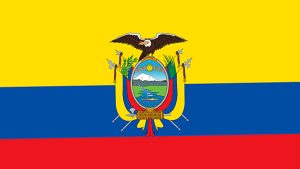Countries where Cryptocurrency Currency is Illegal: Cryptocurrency is a sort of digital or virtual money that use cryptography to protect financial transactions, regulate unit production, and verify asset transfers. It runs on a decentralised network of computers known as a blockchain, which records and maintains a tamper-proof ledger of all transactions.
Cryptocurrencies, unlike conventional fiat currencies issued by central banks, are often neither governed or regulated by any central body. Cryptographic methods are used to safeguard transactions, restrict the generation of new units, and maintain the currency’s integrity. Bitcoin was the first cryptocurrency, and it is still the most well-known. Since then, various more cryptocurrencies have developed, including Ethereum, Ripple, and Litecoin, each with its own distinct characteristics and applications.
Cryptocurrencies may be used for a variety of things, such as online shopping, investments, remittances, and as a store of value. They provide benefits like as quicker and cheaper transactions, more accessibility, and the possibility of financial privacy. They do, however, pose risks including as price volatility, regulatory uncertainty, and security vulnerabilities. The inherent vulnerability associated with cryptocurrency has elicited the caution taken by most Countries against it’s acceptance and use within their territories. Some of the countries with restrictions on the use of cryptocurrency are seen and discussed below.
Recommended: Differences Between Rigid And Flexible Constitution
Top 10 Countries where Cryptocurrency is Illegal In the World 2024
1. China: Cryptocurrency is not completely prohibited in China. However, because to worries about financial stability, capital outflows, and possible investment dangers, the Chinese government has enforced severe rules on cryptocurrency trading and initial coin offerings (ICOs). China outlawed initial coin offerings (ICOs) and shut down local cryptocurrency exchanges in 2017, claiming the necessity to combat fraudulent operations and safeguard investors.

Since then, the government has taken a cautious approach to cryptocurrencies, tightening prohibitions on trade and mining. The People’s Bank of China (PBOC), China’s central bank, has regularly raised worries about the speculative character of cryptocurrencies, their potential for money laundering, and their influence on the country’s financial system’s stability. The government has also been aggressive in marketing its own digital currency, the Digital Currency Electronic Payment (DCEP), as a regulated and controlled alternative to decentralised cryptocurrencies.
Recommended: Most Powerful Weapons In The World (With Pictures): Top 10 Deadliest
2. Ecuador: The Ecuadorian government has imposed restrictions on the usage of cryptocurrency. Ecuador was the first nation to introduce its own state-backed digital currency, the “Dinero Electrónico,” in 2014. This centralised digital currency was marketed by the government as an alternative to decentralised cryptocurrencies, citing worries about its lack of regulation, potential for money laundering, and involvement with unlawful activities.

Following the launch of the state-backed digital currency, the Ecuadorian government enacted laws essentially prohibiting the use of decentralised cryptocurrencies such as Bitcoin for day-to-day transactions. The legislation made it illegal to issue, circulate, or promote any money or payment mechanism that was not issued or controlled by the government. The government’s move to ban cryptocurrency usage was primarily motivated by worries over monetary control, as it wished to preserve power over the country’s monetary system and prevent capital flight. The Ecuadorian government has prioritised financial system stability and avoiding possible hazards connected with decentralised cryptocurrencies.
3. Turkey: The Central Bank of the Republic of Turkey (CBRT) banned the usage of cryptocurrencies and crypto assets for payment in April 2021. Concerns about a lack of regulation, possible hazards to investors, and the potential use of cryptocurrencies in criminal activities such as money laundering and terrorist funding were mentioned as reasons for the prohibition.

The CBRT’s prohibition essentially prevented companies and people in Turkey from accepting bitcoins as payment. It did not, however, make Bitcoin ownership or trade unlawful. The Turkish government has stated its aim to build a regulatory framework for cryptocurrencies, showing that it is not opposed to cryptocurrencies outright but rather intends to establish control and accountability. It has also stressed the need of safeguarding consumers and investors in the bitcoin business.
Recommended: Advantages And Disadvantages of Quantitative and Qualitative Research
4. Iran: In April 2018, the Central Bank of Iran (CBI) released a statement prohibiting financial institutions from dealing with cryptocurrencies, citing worries about money laundering, terrorist funding, and the protection of the Iranian rial, the country’s local currency. This essentially limited cryptocurrency usage inside the conventional financial system.

Despite the restriction, bitcoin mining is permitted under specific circumstances in Iran. The government classified cryptocurrency mining as an industrial activity and controlled it by forcing miners to get licences and follow strict criteria. However, electrical subsidies for cryptocurrency mining have been curtailed, and unauthorised mining operations have been targeted in order to limit excessive energy use. The Iranian government has shown an interest in using blockchain technology and investigating the potential advantages of cryptocurrencies in terms of cross-border transactions and bypassing international restrictions.
5. Morocco: The Moroccan government strictly prohibits and regulates the usage of cryptocurrency. In November 2017, the Moroccan Foreign Exchange Office published a statement saying that cryptocurrency transactions breached Moroccan exchange laws.

This essentially barred the use of cryptocurrency in domestic financial activities. Concerns raised by the government about cryptocurrencies include possible hazards connected to money laundering and terrorist funding, as well as a lack of regulation and consumer protection. The usage of cryptocurrency is seen as a possible danger to Morocco’s financial system’s stability.
6. Egypt: The Egyptian Grand Mufti, the country’s top religious authority, issued a fatwa (religious judgement) in January 2018 claiming that cryptocurrencies were incompatible with Islamic law owing to their speculative character and lack of concrete value. While this fatwa does not have legal power, it has altered Egypt’s opinion of cryptocurrency.

The Central Bank of Egypt (CBE) has also raised worries about the hazards of cryptocurrencies, such as money laundering, terrorist funding, and consumer protection problems. As a consequence, in February 2018, the CBE published a statement warning that cryptocurrencies were not regarded legal cash in Egypt and that financial institutions were forbidden from interacting with or supporting cryptocurrency transactions. Furthermore, the Egyptian government published a draught legislation in July 2019 that recommended harsh penalties, including jail and substantial fines, for people who participate in the issuance, marketing, or trade of cryptocurrencies without official licence.
See also: Differences Between Power and Authority Explained
7. Vietnam: The State Bank of Vietnam (SBV) issued a decree in October 2017 classifying cryptocurrencies, including Bitcoin, as “illegal means of payment.” According to the regulation, cryptocurrencies are not legal cash in Vietnam, and organisations and people are not permitted to use them for payment purposes.

Furthermore, the SBV regulation forbade credit institutions and intermediate payment service providers from engaging in cryptocurrency-related transactions or offering services that enable cryptocurrency trade or usage. The Vietnamese government is concerned about cryptocurrencies for a variety of reasons, including money laundering, fraud, and the potential hazards involved with speculative trading. It strives to retain control over the country’s monetary system, ensure financial sector stability, and promote consumer interests.
8. Algeria: The Bank of Algeria published a statement in December 2017 saying that cryptocurrencies were not recognised as legal money in the nation. The statement emphasised the concerns of cryptocurrencies, such as their possible use in money laundering, terrorist funding, and tax avoidance.

Following this proclamation, the Algerian government forbade people and companies from participating in cryptocurrency transactions. The use of cryptocurrencies for payment or as a means of exchange is practically forbidden, and financial institutions are barred from offering any cryptocurrency-related services.
See also: Countries With The Lowest Inflation In The World 2023: Top 10
9. Bangladesh: In September 2014, the Bangladesh Bank released a circular stating that cryptocurrencies were not legal money in the nation and cautioning against using them for financial transactions. The circular further said that participating in any cryptocurrency transaction constituted a serious offence under current anti-money laundering and anti-terrorism funding regulations.

Concerns raised by the Bangladeshi government about cryptocurrencies include possible issues connected to money laundering, terrorist funding, and consumer protection. Its goal is to defend the country’s financial system’s stability and to prohibit unlawful cryptocurrency operations. Bangladesh’s regulatory position has been fairly harsh, with reports of authorities prosecuting persons engaging in cryptocurrency-related operations. Individuals have been arrested and convicted in various situations for using or promoting cryptocurrency.
10. Bolivia: In 2014, the Bolivian Central Bank issued a decision prohibiting the usage of cryptocurrencies, including Bitcoin, inside the nation. The resolution said that cryptocurrencies are not legal cash in Bolivia and warned that persons and businesses involved in cryptocurrency-related activities would face punishment.

Concerns raised by the Bolivian government about cryptocurrencies include possible hazards relating to money laundering, fraud, and a lack of regulation and consumer protection. Its goal is to defend the country’s financial system and keep control of its national currency. In addition to the cryptocurrency prohibition, the Bolivian government has informed the public about the hazards of investing in cryptocurrencies and has advised against their usage. It should be noted that legislation and policies concerning.
See also: How to Identify a Fake Friend: 10 Signs of a Fake Friendship
In conclusion, although Bitcoin is not illegal everywhere, numerous governments have set limits and prohibitions on its usage. Each country’s motivations for imposing such safeguards vary, but may include worries about financial stability, money laundering, terrorist funding, consumer protection, and preserving control over the monetary system. China, Ecuador, Turkey, Iran, Morocco, Algeria, Bangladesh, and Bolivia are among the nations having tight cryptocurrency restrictions.

Edeh Samuel Chukwuemeka, ACMC, is a lawyer and a certified mediator/conciliator in Nigeria. He is also a developer with knowledge in various programming languages. Samuel is determined to leverage his skills in technology, SEO, and legal practice to revolutionize the legal profession worldwide by creating web and mobile applications that simplify legal research. Sam is also passionate about educating and providing valuable information to people.